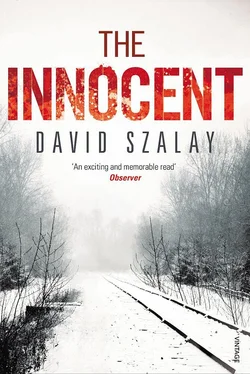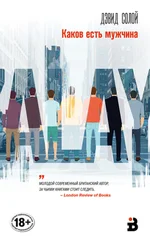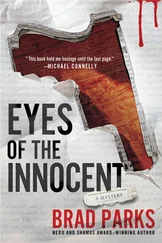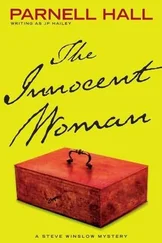Over time, she started to worry less about the possibility that she might be ‘unmasked’ as a kulak – though she worried that if she applied for university her past would be investigated – and more about the fundamental question of her psychology. Was she psychologically healthy? In other words, did she now have a proletarian psychology? She knew that, through useful work, it was possible even for kulaks to feel their way towards this. However, she found it impossible to know for sure whether she had successfully done so. Her struggle with this was the main theme of her journal from 1934 onwards; from initial optimism – What am I supposed to do? Well, that’s obvious. I only need to perform socially useful work in a proletarian spirit – to uncertainty – I need to perform socially useful work in a proletarian spirit. But am I working in this spirit? How am I ever to know this? – to fear – So has my entire progressive development been false, superficial, no more than a mask? I lie awake at night when I think that, it sucks the blood from my stomach like the sap from a birch tree – and despair – It’s not a question of working harder, of trying, striving. It’s a question of psychology, pure and simple. I have to accept it, I have a sick psychology .
What made her feel sure, in the summer of 1936, that she had a ‘sick psychology’ was an increasing sense of her own unhappiness. Psychologically healthy people are happy. That was almost a tautology. When it is done in a proletarian spirit, work makes you happy . One thing in particular, she thought, was obstructing her path to psychological health and happiness.
To try and lead a double life, to hide my origins from people, will never succeed. It’s of no use to anyone, least of all myself. The thing is, I must stop pretending to myself that this isn’t the whole problem .
I have become a secretive, dishonest person, unable to speak openly. I do not have my own thoughts. I find myself parroting things that are foreign to me. Pretending to be healthy and optimistic in what I say, when I’m not .
Though she was terrified of being ‘unmasked’, she often fantasised about it as something that would liberate her, since she would then be able to speak ‘sincerely and truthfully’ to ‘people who understand that my whole life is a lie’. These ‘people’, the people to whom she would be able to speak sincerely and truthfully, the people who would understand, were the NKVD.
Early one morning in January 1937 she and her mother were woken by a knock on the door. A police officer was there. They let him in and he searched the room. He did not say what he was looking for. Whatever it was he did not seem to find it. Then he said to Yefrosinya that she should come with him to the police station ‘just for a few minutes’. She went. At nightfall there was still no sign of her.
Every morning long lines formed at the information office of the Moscow militia. Nadya stood there from four o’clock. It was snowing. Then it stopped. At eight it started to get light. When it was finally her turn at the small window, some time in the mid-afternoon, the official was unable to tell her where her mother was. In the end she managed to track her down to a Moscow prison and went to visit her there. Yefrosinya told her that she had been sentenced to eight years for using false identity papers.
She had always excelled in her school work. Now, at the Second Medical Institute, the elite university where she had won a place the previous year, her work was ‘mediocre’, something linked in her mind with her psychological problems. The truth is, I am a pessimistic, negative person . She wondered, not very seriously, whether to kill herself. Instead, in the summer of 1937, at the end of her first year at the institute, she married one of her teachers. He had been pursuing her for some time, having seen her sitting near the front in his lectures. A few men had been mentioned previously in her journal ( On the 27th I went skating with Alyosha on the skating rink of the Central House of the Red Army …) but Lozovsky was the first to be written about at length. After turning down several more extravagant offers, she went to the cinema with him. Went to the cinema with M. A film called Modern Times. She said she had thought films were ‘stupid’ but that this one had been ‘interesting’. Over tea in the Palace of Scientists, Lozovsky told her about Charlie Chaplin and California. Then he drove her home. Things went on like this for some time. Films, the theatre, tea. They wrote letters to each other. You should stop hiding your feelings and emotions , he wrote in February, in a letter which she transcribed to her journal. You are lonely, and that is because you want very much, but are not willing to give anything in return .
In the late thirties, Lozovsky had a moustache. Aleksandr knows this from the photographs that were found in the house at Metelyev Log. In those photographs it was possible to see the extent to which her life must have been transformed when she married him. (The very existence of so many photographs, of course, was evidence of this.) Lozovsky’s flat was quiet, light, with parquet floors and space for an imported piano. He was one of the intellectual luminaries of the Soviet Union – a sort of prodigy, not yet forty and the head of the Second Medical Institute, winner of a Stalin Prize and 50,000 roubles in the year of his wedding. (Nadya’s mother had earned 2,400 roubles a year as a janitor.) He was handsome, athletic – there were photos of him in tennis whites, and showing off on skates – and he lived a life of extreme privilege. Foreign tailoring, perfumed soap, special food packages. Weekends at the house in Uspenskoye, skiing and skating in the winter. Visits to the Barvikha sanatorium. Summer holidays in the Crimea, where the Academy of Sciences maintained the Gaspra estate for its most eminent members.
She still studied at the institute, took the tram there, had lunch in the student dining hall. In 1940 she qualified as a doctor – with high marks, she exaggerated when she said her work was ‘mediocre’ – and started to practise. In 1941, they moved to Sverdlovsk. Her journal entries of those years, far fewer than previously, are no more than short notes of events – Suvorovs to dinner , Sent parcel to Mama – and even these end in 1944, when they moved to Metelyev Log. There is one more entry, written in pencil on the final page of the journal and undated.
I am by nature a pessimistic person. I do not have a naturally progressive or optimistic – ‘proletarian’ – spirit. Of course, I know I should be working, should be trying to be of use to people. I just don’t seem to have the strength. The strength of spirit more than the physical strength. Life often seems meaningless to me. Isn’t that a terrible thing to say? Here it’s easier to ignore that. You can lose sight of it when you spend so much time alone, when you spend so much time in nature. Maybe that’s why I like it here. It’s only because I’ve failed so totally elsewhere that I like it here. It’s a matter of weakness, of withdrawal, surrender, failure. I know that. For weeks at a time, I am able to ignore this. Then I wake up in the middle of the night, and I know that’s what it is. At those moments I wonder whether I should kill myself straight away, without hesitation, without letting myself think my way out of it. My whole life seems such a sad and stupid waste .
It frightens me to think how much time has passed. When I think of the past, I think, ‘If I’d known then I’d end up like this …’ There’s something so sad about that thought .
I must stop this now. I can’t stand the sound of this stupid voice prattling in my head. All it shows is what a mess I’ve made of my life .
Читать дальше












